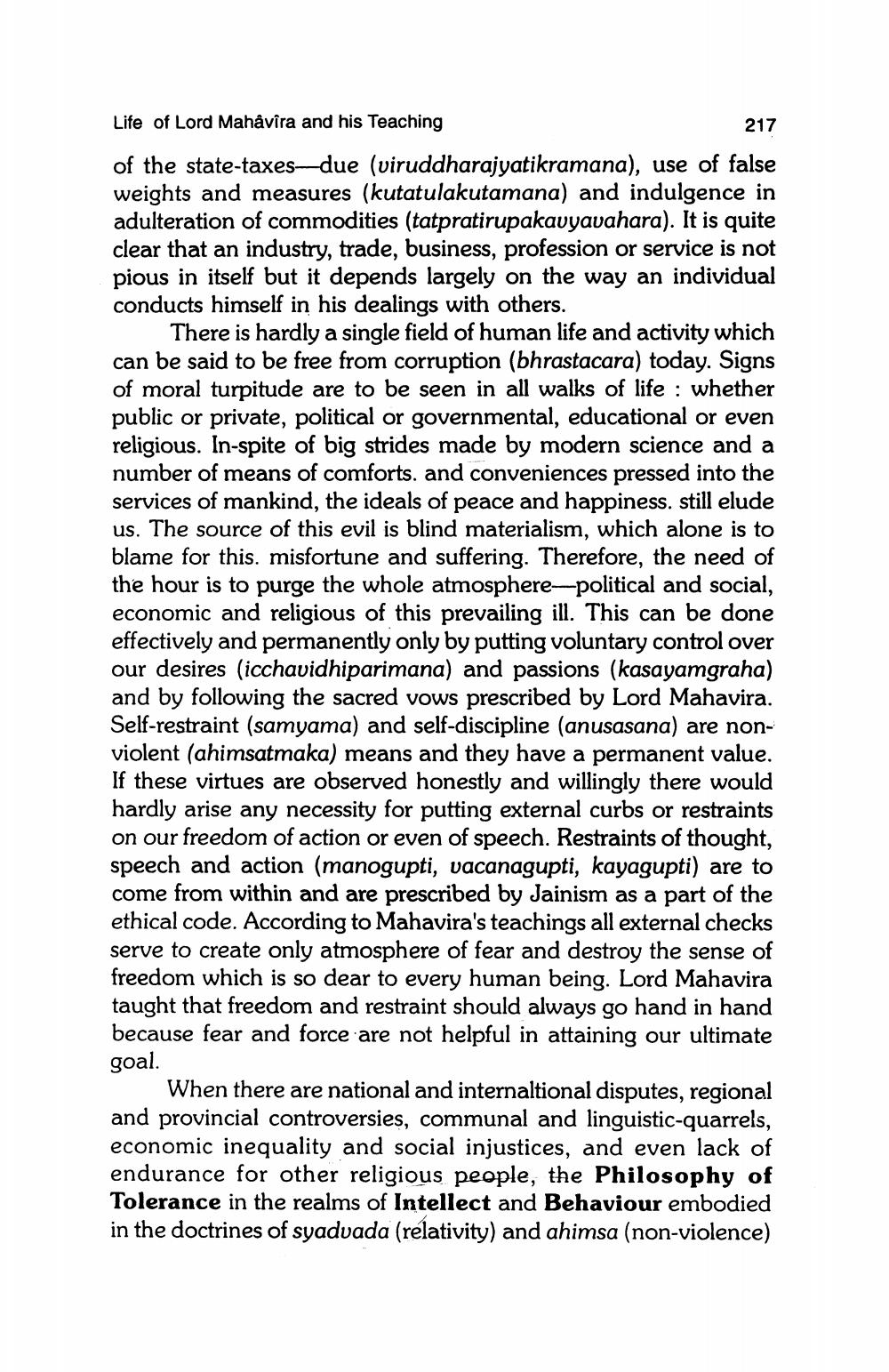________________
Life of Lord Mahavira and his Teaching
217
of the state-taxes—due (viruddharajyatikramana), use of false weights and measures (kutatulakutamana) and indulgence in adulteration of commodities (tatpratirupakavyavahara). It is quite clear that an industry, trade, business, profession or service is not pious in itself but it depends largely on the way an indivi conducts himself in his dealings with others.
There is hardly a single field of human life and activity which can be said to be free from corruption (bhrastacara) today. Signs of moral turpitude are to be seen in all walks of life : whether public or private, political or governmental, educational or even religious. In-spite of big strides made by modern science and a number of means of comforts, and conveniences pressed into the services of mankind, the ideals of peace and happiness. still elude us. The source of this evil is blind materialism, which alone is to blame for this. misfortune and suffering. Therefore, the need of the hour is to purge the whole atmosphere-political and social, economic and religious of this prevailing ill. This can be done effectively and permanently only by putting voluntary control over our desires (icchavidhiparimana) and passions (kasayamgraha) and by following the sacred vows prescribed by Lord Mahavira. Self-restraint (samyama) and self-discipline (anusasana) are nonviolent (ahimsatmaka) means and they have a permanent value. If these virtues are observed honestly and willingly there would hardly arise any necessity for putting external curbs or restraints on our freedom of action or even of speech. Restraints of thought, speech and action (manogupti, vacanagupti, kayagupti) are to come from within and are prescribed by Jainism as a part of the ethical code. According to Mahavira's teachings all external checks serve to create only atmosphere of fear and destroy the sense of freedom which is so dear to every human being. Lord Mahavira taught that freedom and restraint should always go hand in hand because fear and force are not helpful in attaining our ultimate
goal.
When there are national and internaltional disputes, regional and provincial controversies, communal and linguistic-quarrels, economic inequality and social injustices, and even lack of endurance for other religious people, the Philosophy of Tolerance in the realms of Intellect and Behaviour embodied in the doctrines of syadvada (relativity) and ahimsa (non-violence)




